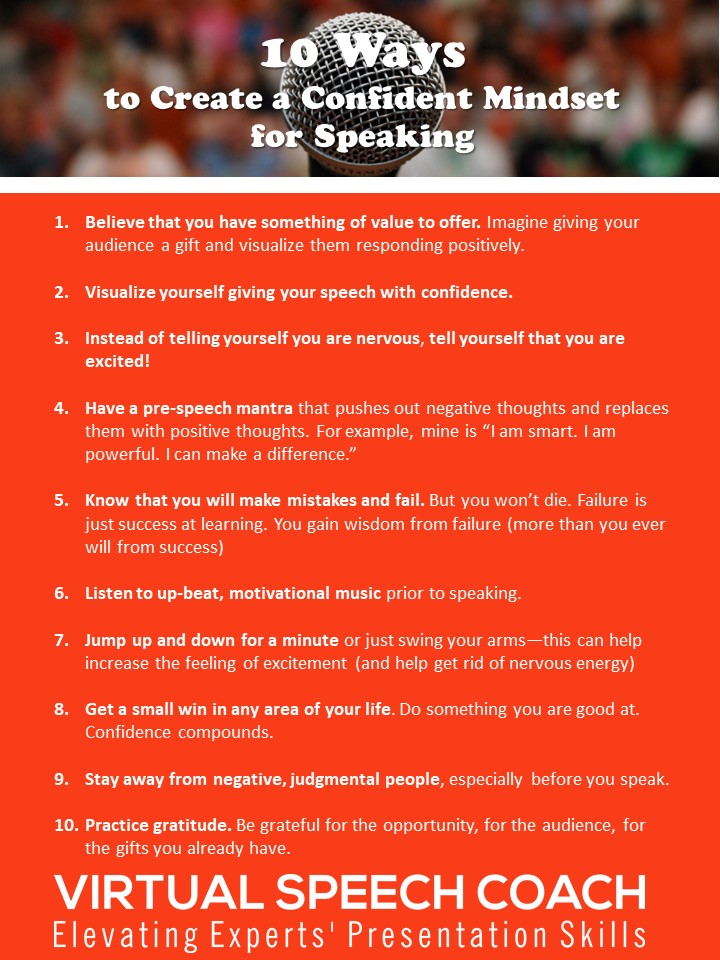Confident Mindset (prints well in color or gray scale)
You look confident. You sound confident. You’ve practiced. Beyond that, confidence is mostly a mind-set. Below are 10 ways you can create a successful confident mindset the day you speak:
- Believe that you have something of value to offer. Imagine giving your audience a gift and visualize them responding positively.
- Visualize yourself giving your speech with confidence.
- Instead of telling yourself you are nervous, tell yourself that you are excited!
- Have a pre-speech mantra that pushes out negative thoughts and replaces them with positive thoughts. For example, mine is “I am smart. I am powerful. I can make a difference.”
- Know that you will make mistakes and fail. But you won’t die. Failure is just success at learning. You gain wisdom from failure (more than you ever will from success)
- Listen to up-beat, motivational music prior to speaking. I created a playlist called “Empowering Songs” that I listen to the day I speak.
- Jump up and down for a minute or just swing your arms—this can help increase the feeling of excitement (and help get rid of nervous energy)
- Get a small win in any area of your life. Do something you are good at. Confidence compounds.
- Stay away from negative, judgmental people, especially before you speak.
- Practice gratitude. Be grateful for the opportunity, for the audience, for the gifts you already have.
Confident Mindset pdf (prints well in color or gray scale)
Learn to be a Confident Speaker! Take Diane’s Online Course, No Fear Public Speaking: Look, Sound and Feel Confident!



Thanks for this list. I find number 7 (doing something physical, like jumping, or power posing) really helps me.
“Stay away from negative, judgmental people.” I agree, and for me, sadly that meant leaving Toastmasters, as I wrote a bit about here.
Hi, Craig! Thanks for commenting!
I read your blog post in which you mentioned the annoying habit of some Toastmasters to provide unsolicited feedback. I haven’t found that to be too much of a challenge personally. If someone gives me unsolicited feedback, if I’m not in an accepting mood at the time, I’ll just say, “Thank you for your feedback,” and leave it at that.
I’m sorry that this was your reason for leaving Toastmasters! I have found my participation in the organization to be overwhelmingly positive.